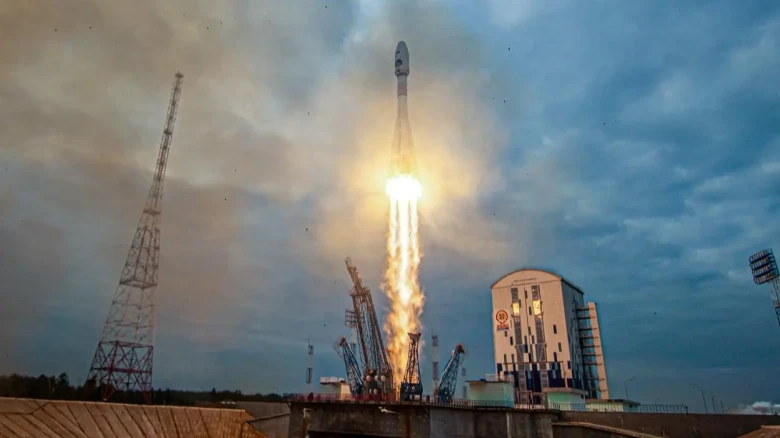On Saturday, while the Luna-25 spacecraft was being sent into its pre-landing orbit, a catastrophic breakdown occurred just after a crucial maneuver.
Digital Desk: Luna-25, Russia's ambitious lunar mission, crashed onto the Moon after spinning out of control. As the country's governmental space corporation, Roskosmos, reported a tragedy, this signals a disappointing conclusion to Russia's first moon mission in almost fifty years.
On Saturday, while the Luna-25 spacecraft was being sent into its pre-landing orbit, a catastrophic breakdown occurred just after a crucial maneuver. Contact with the spacecraft was lost due to an unforeseen problem during this crucial part of the mission, Roskosmos said in a statement.
The tragic conclusion of the Luna-25 mission was conveyed by Roskosmos in their official announcement: "The apparatus moved into an unpredictable orbit and ceased to exist as a result of a collision with the surface of the Moon." The scientific and space communities around the world are in disbelief as a result of this sudden and abrupt end, which represents a major setback for Russia's aspirations for space exploration.
Roskosmos made the following official statement on Telegram: "On August 19, in accordance with the Luna-25 spacecraft's flight programme, it was planned to issue an impulse to establish its pre-landing elliptical orbit. Communication with the Luna-25 spacecraft was cut off around 14:57 Moscow time. On August 19 and 20, efforts were made to locate the gadget and contact it, but they were unsuccessful."
"A specially formed interdepartmental commission will deal with the issues of clarifying the reasons for the loss of the Moon," it added.
A key component of Russia's plans to revive its lunar exploration program was the Luna-25 mission. The spacecraft was made to land on the south pole of the moon, which is of great interest to researchers because it may contain water ice, an essential resource that could be essential for upcoming human expeditions to the Moon and beyond.
The unsuccessful mission was intended to pave the way for more complex lunar endeavours, such as the collection and return of lunar soil samples, by laying the groundwork for the following Luna-26 and Luna-27 missions.
The Luna-25 mission was initially described by Roskosmos as an important turning point in Russia's space exploration history and as a long-awaited return to lunar exploration after almost 50 years since the last successful Soviet lunar mission. Not only have these goals been crushed by the disaster, but it has also sparked debate over the technical difficulties and unanticipated difficulties that space agencies encounter when attempting such challenging endeavours.








Leave A Comment